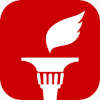THE SPIRITUAL LIMP
 And the king and his men went to Jerusalem unto the Jebusites, the inhabitants of the land: which spake unto David, saying, Except thou take away the blind and the lame, thou shalt not come in hither: thinking, David cannot come in hither. Nevertheless David took the strong hold of Zion: the same is the city of David.
And the king and his men went to Jerusalem unto the Jebusites, the inhabitants of the land: which spake unto David, saying, Except thou take away the blind and the lame, thou shalt not come in hither: thinking, David cannot come in hither. Nevertheless David took the strong hold of Zion: the same is the city of David.
2 SAMUEL 5:6-7 KJV





